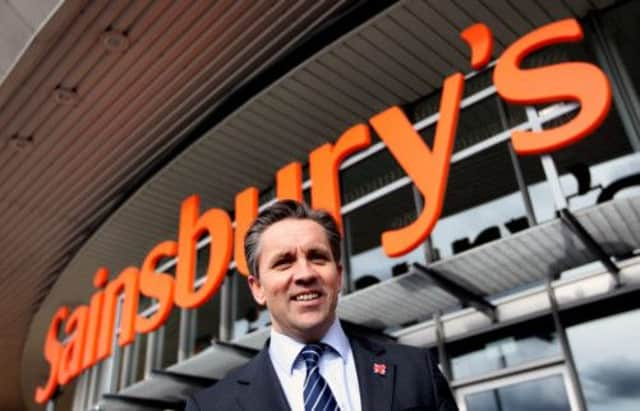Sainsbury’s King warns of threat to recovery


Sainsbury’s chief executive Justin King told a grocery industry conference that despite all the indications that the recovery is gaining momentum, it was unlikely to filter through to spending power on the high street any time soon.
UK consumer spending generates about two-thirds of gross domestic product (GDP), so any slowdown would weigh heavily on economic performance.
Advertisement
Hide AdAdvertisement
Hide AdHowever, King did admit that improving confidence was helping sales of big ticket items such as cars.
“In 12 months time I think we’ll be sitting here saying inflation’s running at about 3 per cent and average wages have gone up about 1 per cent – so net on average a couple of percent out of peoples’ incomes,” he said.
“The reality is whatever happens in the economic backdrop, we’re not going to see a sea change in the amount of money that consumers have to spend.”
But King said it was an individual’s personal circumstances that determined how they felt about the future.
He pointed out that last Friday the Society of Motor Manufacturers and Traders reported the highest number of September new car sales for more than five years.
“It seems to me that’s likely to reflect people being a little bit more optimistic about their personal circumstance, keeping a job for two or three years,” he said.
King’s comments came after industry data showed growth in British retail sales slowed for a second consecutive month in September.
And figures due out today show that shops are having to offer ever more discounts and promotions to entice customers to spend.
Advertisement
Hide AdAdvertisement
Hide AdThat caused overall shop prices to fall for the fifth consecutive month in September, dropping by 0.2 per cent after a 0.5 per cent decline in August.
Nielsen’s monthly report for the British Retail Consortium (BRC) shows that while food inflation rose to 2.9 per cent in September, non-food items experienced annual deflation of 2 per cent.
BRC director general Helen Dickinson said: “Deflation in September was driven by non-food items and in fact, we’ve only seen one month since January 2012 which has been inflationary for non-food.
“Retailers have used deep discounts and promotions particularly in audio and visual equipment and men’s and children’s clothing. This is further evidence of the continuing pressure on margins across the sector.”
Mike Watkins, head of retailer and business insight at Nielsen, said cost pressures in the food supply chain had helped mitigate the shop price deflation in September.
But he added: “Promotional savings and the use of coupons continue and this is helping shoppers to budget and seek out the best deals. With consumers still uncertain about when and where to spend, we expect competition for discretionary spend to intensify in both food and non-food retailing, as we head towards the end of the year.”
“Official” inflation, the Consumer Price Index (CPI), fell in August to 2.7 per cent, from 2.8 per cent in July.